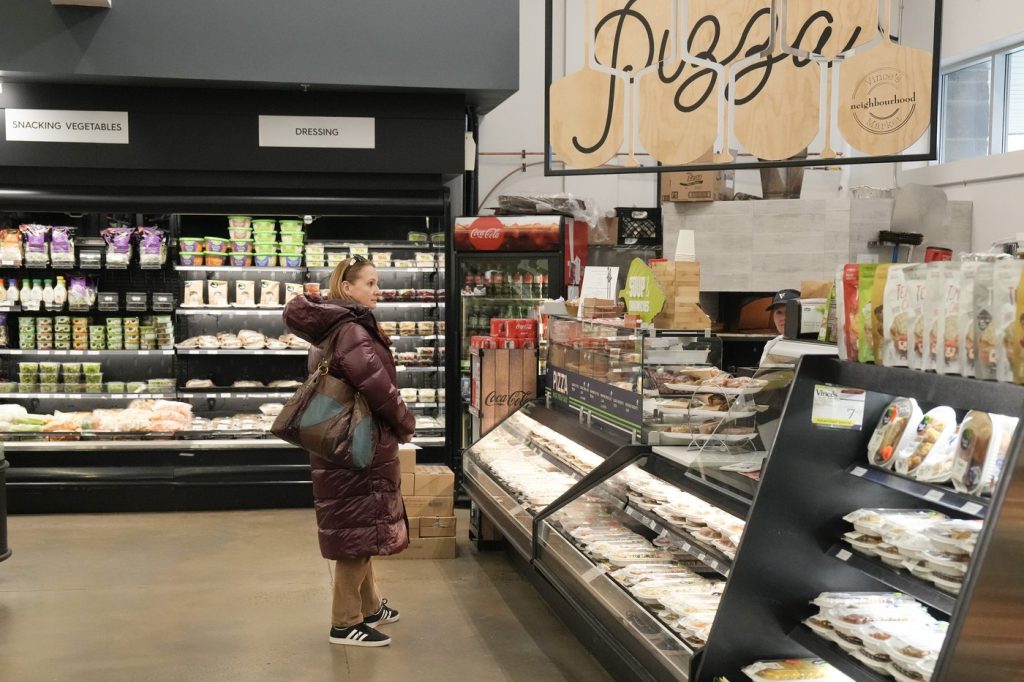Grocers are increasingly investing in the ready-made meal category as Canadians balance the demand for convenience with a willingness to cut back on discretionary spending. As consumers opt for budget-friendly options, grocery stores are expanding beyond traditional offerings like rotisserie chicken and pasta salad to cater to this shift in preferences.
Carman Allison, vice-president of business development at NielsenIQ Canada, notes that retailers have recognized the potential to become a destination for meal solutions, competing directly with restaurants and fast-food outlets for consumers' dollars. According to Allison, 92 percent of Canadians have purchased a meal from a grocery store in the past year, indicating the growth in popularity of ready-made meal options.
Allison emphasizes that grocery-prepared meals are often more economical compared to dining out, particularly as inflation pressures have prompted consumers to search for better value. The ready-made meal sections are now offering a diverse selection of dishes, including sushi, jerk chicken, and chicken korma, with some items available hot and ready to eat while others require heating or cooking at home.
Jana Sobey, senior vice-president of fresh merchandising at Empire-owned Sobeys, highlights that the pandemic has prompted many shoppers to turn to grocery stores for ready-made meals, serving as a midpoint between the convenience of eating out and the savings associated with home-cooked meals. Sobey reports sustained growth in ready-made meal sales even after inflation rates began to stabilize, signaling a long-term shift in consumer behavior.
Despite inflation rates stabilizing around two percent, prices remain high, and consumers continue to seek out deals while being cautious with their spending. The looming trade war with the U.S. also adds uncertainty to future pricing. Joel Gregoire, associate director for food and drink at Mintel, asserts that consumers increasingly see grocery ready-made meals as offering better value compared to restaurant meals or takeout. Mintel research from 2022 to 2024 showed a rise in the number of consumers buying ready-made meals from grocery stores regularly, increasing from 62 percent in 2022 to 66 percent in 2024.
In the previous year, Canadians spent $3.6 billion on grocery meals, translating to approximately 420 million meals nationwide, with an average expenditure of $8.55 per meal. Allison notes that while consumers are attempting to cut back on spending, they still value convenience and are willing to pay slightly more for the ease of prepared meals.
Ready-made meals also serve to complement home-cooked dishes, with shoppers often purchasing a cooked rotisserie chicken alongside fresh ingredients for a salad. Allison identifies rotisserie chicken as a staple that drives significant traffic to grocery stores, with stores expanding their offerings to include a variety of international cuisines. Sobey mentions that Sobeys has seen success in launching more diverse selections, particularly in multicultural food options.
To support the expansion of ready-made offerings, Sobeys has initiated the opening of centralized kitchens to manage more intricate preparation processes, such as the in-house production of soups destined for Alberta stores. This trend reflects the grocery chain's commitment to quality by eliminating preservatives and additives while reducing costs through small-batch production.
Ready-made meals have become a key differentiator for full-service grocery stores amidst a rise in popularity of discount retailers, which typically offer fewer prepared options. Allison points out a polarization in consumer shopping behavior—discount stores cater to staple shopping, while conventional grocery stores exploit opportunities for unique products.
At Fortinos, a Loblaw-owned grocer, ready-made meals are integral to the business, and Guido Alfonsi, vice-president of merchandising and marketing for the chain, emphasizes that their Pane Fresco program, launched in 2011, has significantly enhanced their market position. Loblaw is also investing in ready-made meals in its discount formats; for instance, Maxi, another Loblaw brand, has collaborated with renowned chef Jonathan Garnier to launch a suite of affordable ready-made meals, promoting versatility and convenience.
Historically, dinner has been the primary focus for ready-made meals, but Allison notes that with more Canadians returning to offices post-pandemic, there are emerging opportunities for lunch and breakfast options in grocery stores. The evolving landscape highlights how grocers can capitalize on consumers' needs for convenience during challenging economic times.










